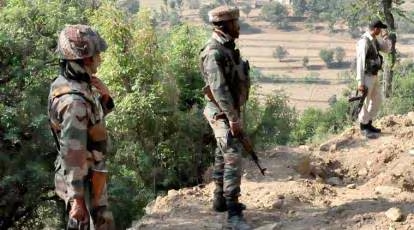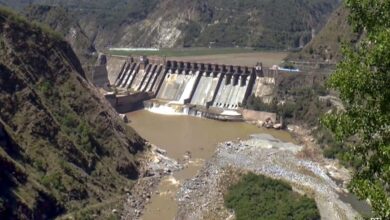Pakistan open fires along LoC before Army chief’s Srinagar visit, India responds
It comes just hours before Indian Army chief General Upendra Dwivedi will visit Srinagar and Udhampur on Friday.

Pakistan Army soldiers fired at various points along the Line of Control (LoC) in Jammu and Kashmir on Friday in a move that seemed to be aimed at violating the ceasefire accord, prompting the Indian Army to retaliate strongly, said individuals with knowledge of the issue.
“There were small arms firing incidents at some places on the Line of Control started by Pakistan,” PTI reported an anonymous source as saying.
Further details are being awaited.
The incident comes hours before Indian Army chief General Upendra Dwivedi is set to visit Srinagar and Udhampur on Friday. During the visit, he will discuss the situation with senior Army commanders stationed in the Kashmir Valley and other security agency officials.
The Army chief is likely to examine the current security scenario and evaluate the recent Pakistan Army ceasefire violations on the LoC, the officials said.
The Pakistan Army firing is amidst rising tensions between the two sides over the Pahalgam terror attack, in which 26 lives were lost.
India’s response to Pahalgam terror attack
After the Pahalgam attack, India has taken a series of stern countermeasures against Pakistan for its suspected support of cross-border terrorism. In a Cabinet Committee on Security (CCS) meeting presided over by Prime Minister Narendra Modi and attended by Union home minister Amit Shah on Wednesday, India decided to put the Indus Waters Treaty of 1960 in abeyance until Pakistan withdraws its support for cross-border terror operations permanently.
Moreover, India has closed down the integrated Attari Check Post.
India also announced a few officials of the Pakistani High Commission as persona non grata and asked them to depart from India within a week. In addition, it has cancelled all visas granted under the SAARC Visa Exemption Scheme (SVES), asking Pakistani nationals to depart from India within 48 hours.
Pakistan responded by rejecting suspension of the Indus Waters Treaty and threatening that any move to close or divert water flows due to Pakistan under the treaty would be considered an “act of war.”
The World Bank-mediated Indus Waters Treaty has controlled water-sharing terms between India and Pakistan since 1960. The treaty includes the Indus and its tributaries, comprising the Indus river system. The eastern rivers of Ravi, Beas, and Sutlej are predominantly apportioned to India, whereas the western rivers of Indus, Jhelum, and Chenab are predominantly distributed to Pakistan. The Kabul river, although included within the system, does not pass through Indian territory.
These rivers are crucial for the water security of both nations.






